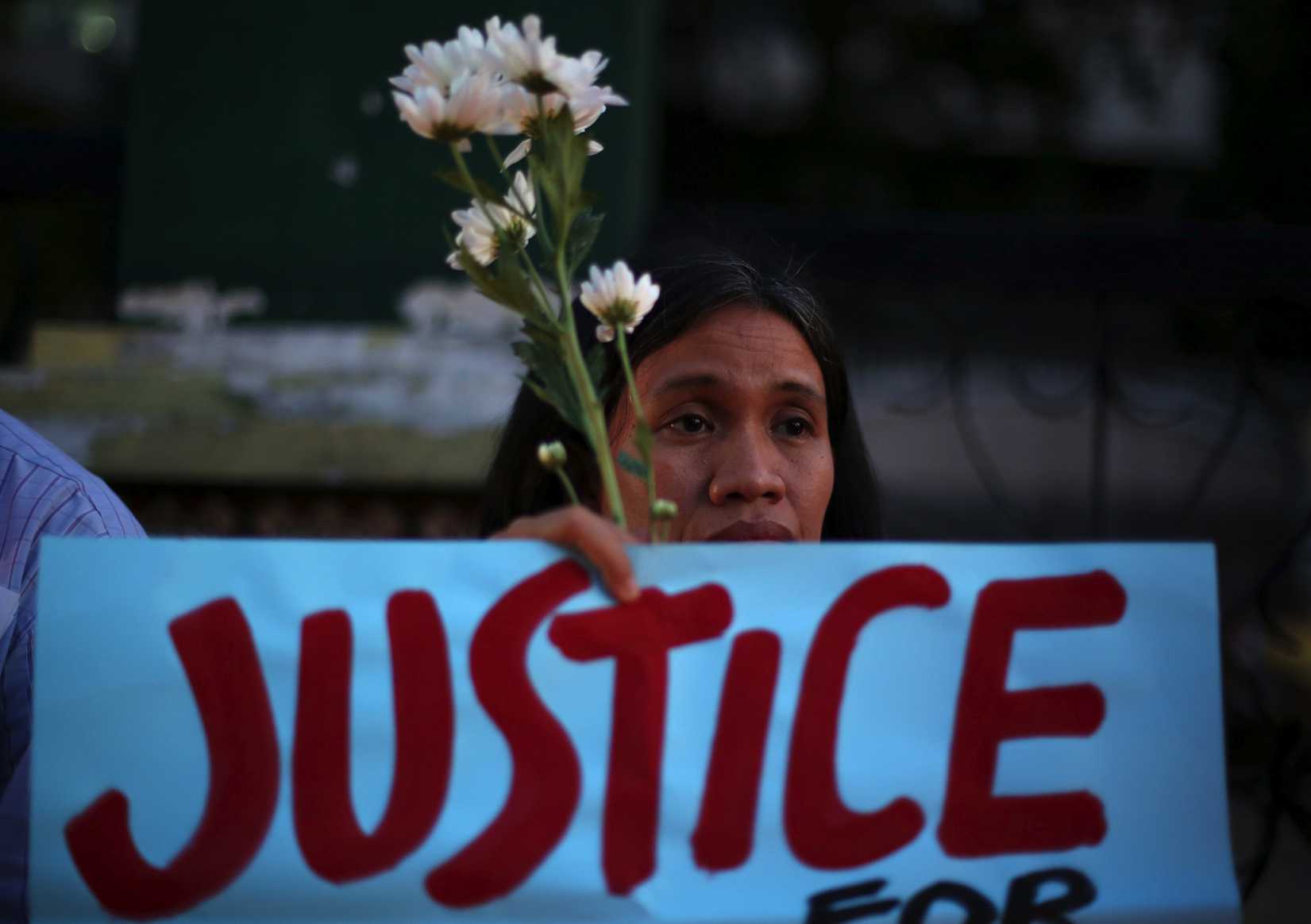
The burial of transgender woman Jennifer Laude has sparked a “National Day of Outrage” in the Philippines, with LGBT organizations staging candlelight vigils across the country on Friday.
A U.S. Marine has been accused of her killing.
“We will deliver messages of solidarity and push for justice,” says Charlese Saballe, chairwoman of the Society of Transsexual Women of the Philippines (STRAP). “The media attention to Jennifer’s case means a slow movement toward bringing transgender issues to the mainstream.”
Following Laude’s Oct. 11 murder, media have mostly focused on the fact that suspect Joseph Scott Pemberton has been held under U.S. guard, under a defense agreement between the two countries. Loud criticism has been raised over the agreement, with protesters attempting to carry a mock coffin to the U.S. embassy in Manila on Friday.
However, as Steven Rood, the Asia Foundation’s representative in the Philippines, points out, much of that will blow over.
“There’s the sensitivity of not treating Filipinos as second-class citizens in their own country,” he says. “But the backdrop is that the average Filipino citizen is very much in favor of having U.S. troops here. This doesn’t threaten U.S.-Filipino relations; the strategic benefits for the alliance will override this specific issue.”
Rather, some people hope that the strong bilateral connection between the two countries could impact the LGBT rights struggle in the Philippines. LGBT groups have participated in several protests outside the U.S. embassy in Manila and at vigils in the U.S.
“If media and other groups in the U.S. frame [Laude’s murder] as a hate crime and focuses on transgender rights, it might trickle down to people in society here and affect how they treat transgender and LGBT people,” says Saballe.
While visible, LGBT people in the Philippines lack anti-discriminatory legislation and the legal recognition of transgender available in many other countries, including the U.S.
“[Seen] with American eyes, the position of the LGBT community in the Philippines is an unusual one,” says Rood. “It’s a normal part of the Filipino community, but the violence they may be subjected to has not been very visible. This will certainly be a rallying cry.”
Saballe, whose organization also monitors violence against LGBT people in the Philippines, stresses that the community is “not really accepted in society.” She adds, “Only days after Jennifer was killed, two other trans women were murdered.”
Friday’s protest action is being held simultaneously in four cities in the Philippines, with a solidarity event also arranged in the Netherlands and a discussion forum in Thailand.
More Must-Reads from TIME
- Donald Trump Is TIME's 2024 Person of the Year
- Why We Chose Trump as Person of the Year
- Is Intermittent Fasting Good or Bad for You?
- The 100 Must-Read Books of 2024
- The 20 Best Christmas TV Episodes
- Column: If Optimism Feels Ridiculous Now, Try Hope
- The Future of Climate Action Is Trade Policy
- Merle Bombardieri Is Helping People Make the Baby Decision
Contact us at letters@time.com